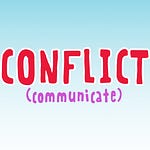Abbie: Hello and welcome to the CosmoParenting Podcast brought to you by the CMM Institute for Personal and Social Evolution. In this space, we invite you to see yourself as someone who is curious about and actively participating in creating your own meaning around parenting.
Today, we are beginning a new month and new theme, so this is our ‘Appreciate’ episode, where we introduce the theme and offer questions to reflect on that help us appreciate where we are and where we’ve been. Let’s begin.
*music*
Abbie: This month is about moral forces. I imagine that this is a theme that you might not be familiar with. And that’s totally okay. I think this is new language and a new concept for most people, if not everyone. So, I’m especially excited to talk about this with you today.
The best definition of moral force is this: moral forces are strongly felt senses for how to act in situations. So, “moral forces” is a fancy way to talk about why we feel we have to act certain ways in certain situations. I imagine that some ideas are already coming to mind for you as I say this definition. The point of talking about moral forces is to help us to bring something that happens mostly subconsciously for us into our consciousness, so we can reflect on it and change it if we need to. Let’s talk about a few different ways we experience moral forces.
First, in some situations the moral force is so strong that you think you have to act in one certain way and it feels like you have no choice in the matter. So, what’s going on in those situations is you’re responding to what just happened, operating from this subconscious place which feels obligated to respond in one specific way. For example, you might immediately grab your child and discipline her when she runs into the street because what else is there to do?
Second, there may be other situations where you feel a strong moral force to act in a way to change what comes next. You’re thinking of where you want to go and you act in a way that gets you there. An example of this may be that you recognize a pattern of fighting with your child so you decide to change your own response to help make the situation better.
A third kind of moral force is related to the contexts we are embedded in. If your family of origin and all your friends have the belief that being involved in sports is essential for building character, you may also have a strong moral force that you, too, as a parent, must involve your children in sports, whether or not sports are what they are interested in.
And finally, there are situations where you don’t feel a strong moral force to respond in a certain way so it’s easier to act in a number of ways. For instance, you don’t really care if your toddler wants to wear mismatched clothes, so you let it go when he comes out wearing something that definitely doesn’t go together.
Once we understand moral forces and how strong they can be in affecting our behavior, we can look at them more objectively and work to modify them if our relationships are suffering because of them.
Back to the example of your toddler wearing mismatched clothes; let’s say you do feel a strong moral force that he should never wear mismatched clothes in public; you want him to look “put together.” And when he tries to dress himself, you and he invariably get into an argument over what he can wear. You can reflect on why this is so important to you? Where is that moral force coming from? Even though it leads to fights and tantrums, why do you choose to act the way you do? Upon reflection, you realize you’re concerned about what people will think of you as a parent. But you also realize that there are a lot of kids you know who wear mismatched clothes and it’s never been a big deal for anyone. So, the moral force of what people may think of you because of what your child wears might lose some of its griponce you do this reflecting. And you can be more flexible with your toddler dressing himself for certain public occasions.
Once we become aware of moral forces in our lives, where we go from there is to ask ourselves what purpose these strong forces serve and whether they are aligning with our values and beliefs and the kinds of relationships we’re wanting to create. This is something we can always be working on and something to help your children think about, too. And we will get more into the practice of this in the coming episodes. Today, is just about learning to recognize moral forces in our lives and begin to use this new language around these ideas.
To help us do that, I want to offer some questions for you to reflect on for yourself. I am going to ask the questions here, but you can also find them written in the show notes of this episode, or on the Substack.
Think about the culture you live in: what kind of moral forces influence the beliefs you have and the way you act with others?
Can you identify any strong moral forces that affect how you parent?
How can you try to become more aware of the moral forces at work in your life?
Okay, those are the questions I will leave you with today. I invite you to spend some time in reflection after this episode ends and throughout your week thinking about your responses to these questions. I’ll also point you toward the additional resources we have at available for free at www.cosmoactivities.com and I’d also like to encourage you to do at least some of your reflecting on the CosmoParenting Substack so you can be in dialogue with our community! Thank you so much for joining us for this episode of the CosmoParenting Podcast. We are so grateful to be on this journey with you. And we will see you next week to hear a parenting story.
*music*












Share this post